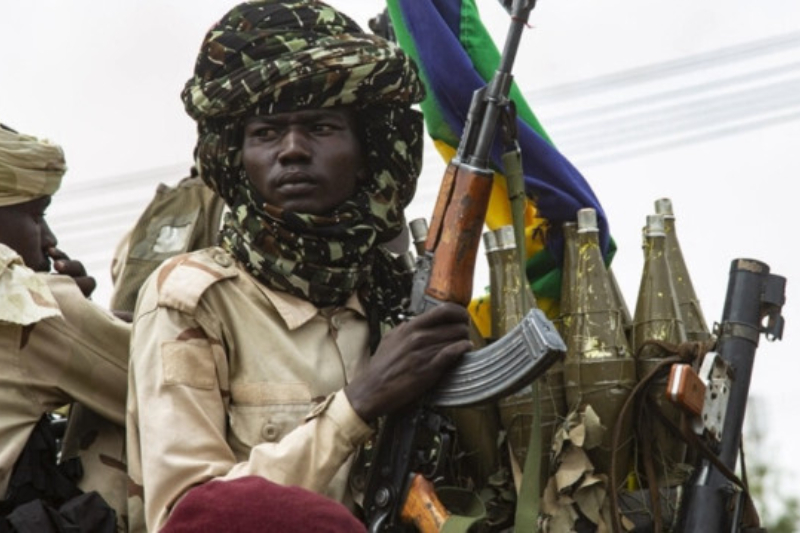Unveiling Ongoing Atrocities: The ICC Prosecutor Addresses the UN Security Council
Ten months into the war in Sudan, the International Criminal Court (ICC) prosecutor, Karim Khan, addressed the UN Security Council, shedding light on the grim situation in the Darfur region. Khan asserted that there are grounds to believe that both the Sudanese Armed Forces and the Rapid Support Forces (RSF) and their affiliated groups are committing atrocities, including war crimes, crimes against humanity, and potentially genocide.
Darfur’s Troubled History Resurfaces: A Center of Ethnic Violence
Darfur, a region that witnessed bloodshed and atrocities in 2003, has once again become the epicenter of the current conflict. Ethnic violence rages on, with paramilitary troops and allied Arab militias targeting non-Arab ethnic groups. The city of Al Geneina in the West Darfur region, symbolizing the war’s suffering, has been particularly affected, with reports of alleged atrocities forming a central focus of the ICC’s investigations.
Mounting Death Toll: Alarming Reports from West Darfur
Reports suggest that between 10,000 and 15,000 people from non-Arab communities were killed in the West Darfur region last year, attributed to the actions of the paramilitary RSF and allied Arab militias. The situation in Al Geneina has drawn international attention, emphasizing the urgent need for accountability and intervention to halt further bloodshed.
ICC Mandate and International Responsibility: A Call for Action
In 2005, the UN Security Council referred the situation in Darfur to the ICC, giving the court a mandate to investigate crimes in the region. Prosecutor Khan underscored the failure of the international community to execute warrants issued by the ICC, leading to a climate of impunity. The ongoing violence, which started in April and persists, necessitates global attention and collective action to address the dire human rights situation.
Keep Reading
Voices of the Displaced: Darfuris Speak Out Against Injustice
During his address, Prosecutor Khan highlighted a meeting with 70 Darfuris in London who expressed concern about the world’s indifference to their suffering. Uprooted and targeted for years, they fear being overlooked by the ICC and the international community due to their perceived insignificance. Their accounts underscore the urgency of recognizing and responding to the plight of those affected by the conflict.
Calls for Ceasefire: The IGAD Summit Urges Leaders to Act
Amidst the ongoing conflict that has displaced over 7 million people and claimed thousands of lives, an IGAD summit urged warring leaders, General Al Burhan and General Hamdane Daglo, to agree to a ceasefire and engage in a face-to-face meeting. The international community is now faced with a critical juncture, requiring swift and decisive action to address the humanitarian crisis unfolding in Sudan.
Urgent Calls for International Response to the Darfur Crisis
The unfolding situation in Darfur demands immediate attention and decisive action from the international community. As reports of ongoing atrocities continue to surface, the plight of those affected by the conflict remains dire. The ICC prosecutor’s assertion of potential war crimes, crimes against humanity, and genocide underscores the urgent need for accountability and intervention.
Accountability Amidst Chaos: The ICC Prosecutor’s Grim Findings
The ICC prosecutor’s clear assessment of ongoing crimes in Darfur by both the Sudanese Armed Forces and the RSF sends a stark message to the international community. The Rome Statute, established in 2002, empowers the ICC to investigate the world’s worst atrocities, yet the failure to execute warrants has allowed a climate of impunity to persist. The time has come for the international community to address this flagrant disregard for human rights and justice.
Darfur’s Human Toll: A Glimpse into Al Geneina’s Suffering
The city of Al Geneina has become emblematic of the suffering endured during the current conflict in West Darfur. The alleged atrocities in this region form a central focus of the ICC’s investigations. The mounting death toll, with estimates ranging from 10,000 to 15,000 people killed last year alone, underscores the urgent need for immediate international intervention to protect the lives of those caught in the crossfire.
The ICC Mandate: A Call to Uphold International Justice
A Security Council referral from 2005 gave the ICC the authority to look into and prosecute crimes in Darfur. Prosecutor Khan’s remarks highlight the continued relevance of this mandate and the need for international cooperation to bring those responsible for atrocities to justice. The failure to act risks perpetuating a cycle of violence and impunity.
Voices of the Vulnerable: Darfuris Speak Out
The meeting between Prosecutor Khan and Darfuris in London provides a poignant insight into the human toll of the conflict. Displaced, targeted, and feeling invisible, these individuals emphasize the urgency of the international community’s response. Their voices echo a plea for recognition, justice, and an end to the suffering that has plagued their communities for years.
Ceasefire Calls: The IGAD Summit’s Urgent Plea
Against the backdrop of escalating violence, an IGAD summit urges warring leaders, General Al Burhan and General Hamdane Daglo, to agree to a ceasefire. The displaced number is over 7 million, and thousands have lost their lives. The international community faces a critical moment in shaping the future of Sudan, with a pressing need for diplomatic initiatives and humanitarian aid to address the escalating crisis.
The Path Forward: International Cooperation and Swift Action
As the international community grapples with the ongoing crisis in Darfur, it is crucial to prioritise cooperation, accountability, and swift action. The ICC’s role must be reinforced, and diplomatic efforts should be intensified to bring about a lasting ceasefire. The plight of the people in Darfur cannot be ignored any longer, and a united global front is needed to address the humanitarian crisis and hold those responsible for atrocities accountable.

